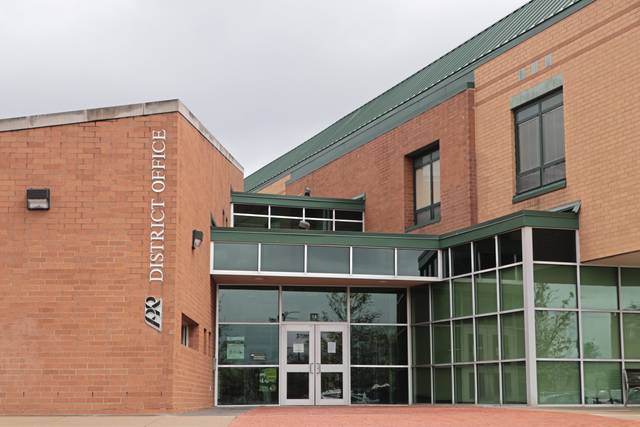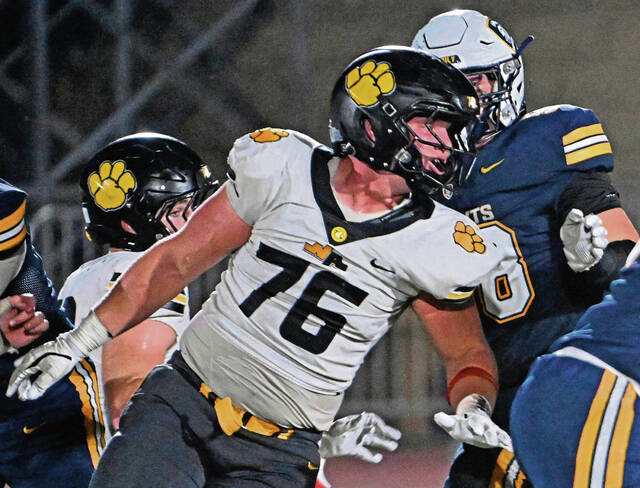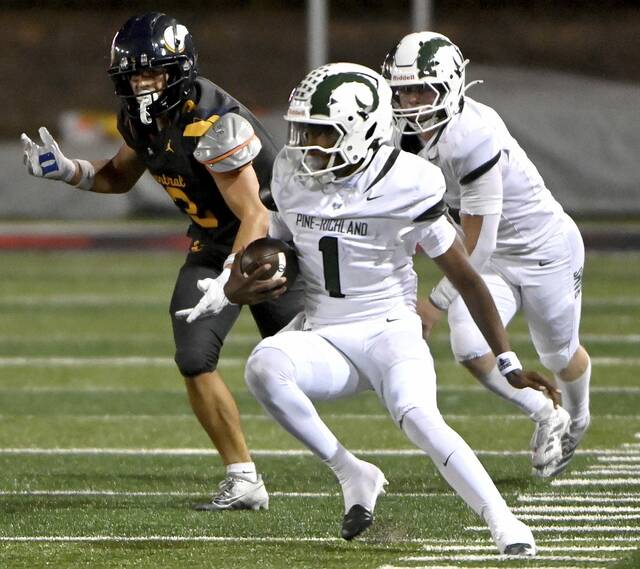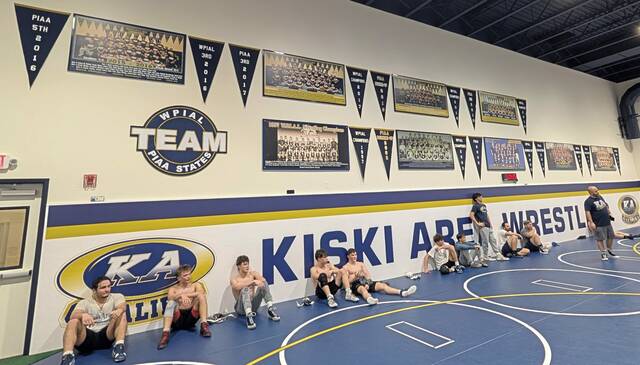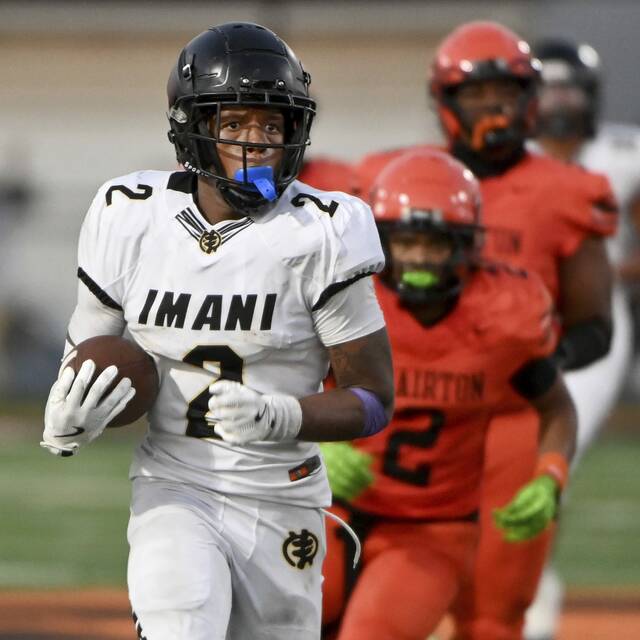The father of a Pine-Richland football player is accusing the school district’s administration of leaking information about his son to create a “scapegoat” for their decision to fire head football coach Eric Kasperowicz.
Vince Cruz, whose son is a sophomore on the junior varsity football team, said he retained attorney Joel Sansone after learning that a series of problems his son encountered during the past two years were cobbled together by district administrators to bolster the decision not to renew the football coach’s contract.
The district fired Kasperowicz after conducting a three-month investigation into allegations of misbehavior in the high school football program that the district said included hazing, bullying, intimidation and “rites of passage.”
District officials Thursday denied the accusations leveled against them by Cruz.
“There is absolutely no truth to allegations that the Pine-Richland School District, its school board, staff or anyone acting on its behalf at any time leaked information, ‘scapegoated’ any student, implicated or identified any student to anyone in any part of its investigation into the allegations of student misconduct and overall misconduct within the football program as it relates to the district’s decision not to renew the head football coaching supplemental contract of Eric Kasperowicz,” district spokeswoman Rachel Hathhorn wrote in response to a request for comment from the Tribune-Review about Cruz’s allegations.
Kasperowicz has repeatedly denied accusations that improper activity occurred under his watch.
Cruz and Kasperowicz were teammates on the football team at North Hills High School in the 1990s and Kasperowicz’s brother served as best man at Cruz’s wedding.
The Cruz family lived in Tampa, Fla., for more than two decades before moving back to the Pittsburgh area when their son was in eighth grade.
Turmoil begins
“My son was having some issues with a few of the players on the freshman team (last year) because he was the new kid in school and never played football before, so he was still learning the game,” Cruz said. “They were making fun of him because he didn’t even know how to put the pads on correctly. But it was nothing he couldn’t handle.”
Cruz said things started to improve when his son joined the wrestling team.
“He was pretty good and the kids started to respect him for that,” he said.
Cruz described the encounters his son had on the freshman team as “kid stuff” that was worked out, and he did not feel a need to involve the administration.
“There was no hazing or anything like it,” Cruz said. “It was basically kids being jerks, so we left it at that.”
Cruz said a second incident involving two football players who sent his son a video in which they threatened to beat him up also was resolved without involving district officials.
“I drove my son to the players’ homes and told him he needed to defend himself,” said Cruz, who noted that his son is an experienced martial artist. “But when my son confronted the boys, they apologized. And it was over.”
Cruz said the family put the incidents behind them and that his son was settling in when the taunting resumed this year.
“On New Year’s Eve a group of kids were at a party and one of them, somebody who was not on the football team, sent a message to my son filled with racial slurs,” said Cruz, whose family is Asian-American. “My son was embarrassed that he was being used for entertainment by a bunch of other kids.”
A second incident occurred this year when the teen was invited to a party by classmates, who then turned on him when the parents hosting the event discovered that the students were smoking marijuana, Cruz said.
“When the parents confronted the kids, they put the blame on my son,” Cruz said.
The series of incidents prompted Cruz’s son to ask to be transferred out of the district, and the family began exploring options for him to continue his education at another school.
“He was at the point where he just wanted out of there,” Cruz said. “It was really beginning to take an emotional toll on him, and he just wanted a fresh start.”
District gets involved
Cruz said the district entered the picture when the family approached a guidance counselor seeking recommendations for schools where their son might transfer.
“We were called in twice by administration to talk about the problems my son was having,” Cruz said. “During the first meeting, it seemed that they were genuinely interested in his well-being.”
Cruz said that changed after the second meeting, when the focus switched to inquiries about the football program.
“They thanked us for coming forward and providing them with the information they needed for their investigation,” Cruz said. “But they also berated me and said I should have come forward when these things first happened and that my son’s well-being was more important than any football program.”
Cruz said he thinks district officials were digging for dirt and said he became suspicious of their motives because “they seemed more interested in discussing what was going on in the football program than what the other kids did to my son.
“That’s when I really started to feel that this was a witch hunt,” Cruz said. “I believed the incidents involving my son were used to advance some sort of political agenda. We never complained about the football program because it’s a wonderful program, and the coaching staff has done a terrific job. But the administration made it appear that my son was the source for the coach being fired, and he’s suffered because of it.”
Sansone was more strident in his criticism of school officials.
“They (district officials) used these incidents for the sole purpose of consolidating the superintendent’s power with the support of the school board,” he said. “And it was done without regard to the emotional impact on my client, who has been thrown under the bus.”
Cruz said he thinks somebody in the district leaked the information that was being gathered about his son because of the way the teen was treated by teammates the day after Kasperowicz was fired.
“He was doing weight training with his teammates the day after the firing, and they wouldn’t talk to him. They turned their backs toward him,” Cruz said. “One of the kids had his hand balled in a fist and was shaking, but my son had no idea what was going on.”
School officials tight-lipped with information
Sansone said his client has been harassed and even received death threats because people think his complaints resulted in Kasperowicz’s dismissal.
He said the district’s failure to reveal details of the findings it used to fire the coach also are questionable.
“There’s a reason why pretty much the whole community isn’t accepting their explanation that Kasperowicz was fired because of a pattern of improper behavior in the football program,” the attorney said.
In its response to Sansone’s accusations, the district said it has not released detailed information about its investigation because it must protect the confidentiality of its students.
“The district has been, and remains, observant and vigilant in its absolute duty and mission to preserve the confidentiality of its students, the investigation and the information received, regardless of its source,” they said.
Sansone said he isn’t buying it.
“If such bad things were going on, then why, as mandatory reporters, did the district not notify the police?” Sansone said. “The reason is because this is about a superintendent who doesn’t want a luminary around who is glowing brighter than him.”
A “mandatory reporter” refers to people who, because of their professional status, are required by law to report suspected child abuse.
Northern Regional Police Chief John Sicilia said Wednesday that it is the school district’s practice to notify the police department when allegations of improper behavior occur to determine if a crime has been committed. The district, however, did not do that at any point during its probe of the football program, he said.
The district’s decision not to release information was also based on communications with residents, they said.
“Administrators have heard fear and concern expressed by students, staff and parents about sharing football-related information in the course of this investigation,” the district wrote in a statement.
“That is precisely why the district remained silent initially, electing not to address the one-sided media frenzy of half-truths and untruths, why the district did not take questions following its press conference and, in part, why the information that has been shared by the district to date has been limited.”
“The District has a responsibility to protect the health, safety and welfare of our students. Preserving the confidentiality of our students and their families throughout this process remains of paramount importance to us, as our statement to the press on Tuesday reflected.”
The Tribune-Review filed Right to Know requests on April 19 for emails and other correspondence sent between Superintendent Brian Miller, Kasperowicz and TJ Salopek, an assistant principal who has been named the district’s new athletic director.
The district has five business days after receiving the request to provide the documents, deny the request by citing the legal basis for the denial or ask for a 30-calendar day extension according to the state’s open records law.


